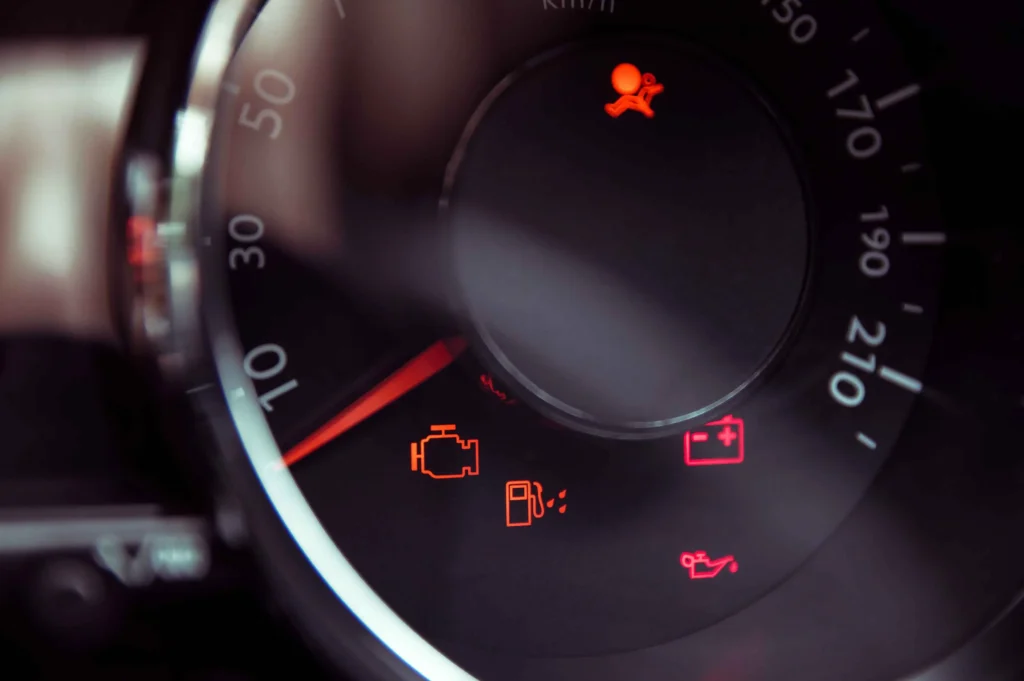7 dashboard warning lights you should never ignore
Car Accident - March 28, 2024 by Horwitz, Horwitz & Associates
Dashboard warning lights exist to warn motorists of potential safety hazards and part mouse functions. Unfortunately, far too many drivers do not understand these warning signs and wind up suffering catastrophic injuries. A Chicago car accident lawyer can help you hold at-fault parties accountable so you can recover the compensation you deserve after such a collision.
However, it is important to understand how these warning signs work, what they mean, and which dashboard warning lights you should never ignore if you hope to protect yourself from the severe implications of a collision.

Pay attention to these car dashboard warning lights
Car dashboard warning lights can mean a number of things. Depending on the type of warning you receive, you may need to pull over to the side of the road immediately and request emergency roadside assistance.
Otherwise, you may be at risk of causing a catastrophic car crash or suffering devastating injuries if any of your car parts suddenly fail. Here are some of the most common types of warning lights and what they mean.
Seat belt warnings
One of the most well-known warning lights on dashboard systems includes seat belt warnings. The Governors Highway Safety Association requires motorists to cross the country and passengers traveling in the front seat to wear seatbelts while vehicles are in motion.
Countless studies have shown that wearing a seatbelt is one of the most efficient ways to reduce the instances of severe injuries and deaths in car accidents. Most newer vehicles have seatbelt warning lights which remind you to put your seatbelt on when the vehicle starts. The seatbelt warning light may also chime or beep to ensure you are aware that you are unbelted.
[Read: Can I still sue for damages if I wasn’t wearing a seatbelt?]
Check engine lights
You should never ignore your check engine light. This is the light on your dashboard that is shaped like an engine or could be the words “check engine.” Unfortunately, the check engine light is not specific. It does not give you a clear idea of what is wrong with your vehicle.
Sometimes, check engine lights can come on due to a failing O2 sensor which is not a driving hazard. However, the check engine light can also indicate that something more serious is going on, and continuing to drive the vehicle could be dangerous.
Battery lights
If there is a problem with your battery, the dashboard may lead up with a battery warning indicator. Usually, if there are issues with your battery, it may not start. However, battery issues can also indicate that there could be an issue with your vehicle’s wiring, alternator, starter, or other parts.
Airbag indicators
Airbags are one of the most important safety devices within all vehicles. If your airbag indicator light comes on, it means there could be a problem with your airbag inflator, system, or other parts. It is critical to get your airbag fixed as soon as possible if the warning light comes on. Otherwise, you may be at risk of severe injuries or death if you are involved in a collision and your airbag malfunctions.
Brake warnings
One of the most important dashboard lights to never ignore is the one involving your brakes. Your braking system is crucial at all times. If you have a brake malfunction, it could be a more serious issue, such as a leak in the brake line. However, it could also be something minor, like your brake lights going out.
Automatic transmission system warnings
When there is a defect or malfunction with your vehicle’s transmission, the automatic transmission warning light should come on. This may indicate there is an issue with the engine temperature, vehicle fluid levels, or pressure issues.
Unfortunately, if there is a problem with your car’s transmission, you can expect to pay a considerable amount of money to get your vehicle repaired. This is a cost you cannot afford to put off, as a defective transmission could leave you stranded or suffering from catastrophic injuries if you are involved in a collision.
Engine oil levels
You should never ignore dashboard lights that signal issues with your engine oil levels. Oil is to a car what blood is to a human. Your vehicle needs oil and cannot function without it. If your engine oil is low, it may be due to needing a routine oil change or, more seriously, a leak in the engine. If you ignore your engine oil light, you could be putting yourself and your vehicle in jeopardy.
Get help from a Chicago car accident lawyer today
Dashboard warning lights are supposed to protect you and your passengers when auto parts are malfunctioning or defective. If you do not understand your dashboard warning lights or your vehicle malfunctions and these warning lights never go off, you may suffer devastating injuries if your car crashes.
Prepare to hold auto parts designers, distributors, manufacturers, and other third parties accountable when you contact a Chicago car accident lawyer for a free consultation. Schedule yours as soon as today when you fill out our quick contact form or call our office at (800) 985-1819.


